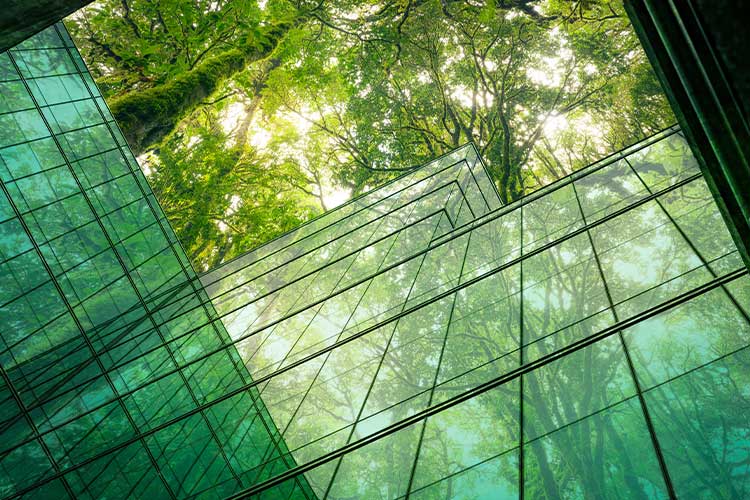

Currently, only 4% of occupiers boast portfolios that are 100% green certified
June 10, 2024 | Staff Reporter | Asia-Pacific | Facilities Management

Companies striving to meet ambitious decarbonisation targets across Asia-Pacific may crash straight into a shortage of environmentally certified office space by 2030, according to a forecast by real estate consultancy JLL. The supply of so-called net-zero carbon (NZC) office space will fall short of demand, as 87% of real estate occupiers in Asia-Pacific are targeting 100% green-certified portfolios by 2030, JLL said. The mismatch will drive strong competition for such facilities in the next six years as well, the company said.
The company defines an NZC building as “all-electric, highly rated, energy-efficient and powered by renewable energy”. “One of the major challenges is the limited supply of green-[certified] buildings,” Helen Amos, JLL’s head of sustainability in Hong Kong, said in a statement, adding that the shortage in the city will be particularly acute. “The supply may not be able to meet the increasing demand in the long term. Even including the projects in the pipeline, the majority of buildings in Hong Kong will not [be] green certified.”
However, retrofitting existing buildings can deliver environmental performance on par with, or even exceeding, that of newly constructed buildings, she said. Only 4% of occupiers boast portfolios that are 100% green certified currently, according to JLL’s survey of 243 senior commercial real estate decision-makers in Asia-Pacific in November. The research covered eight geographies, with two-thirds of respondents belonging to multinational corporations.
“Today, leasing office space in green certified buildings is no longer a differentiator but a minimum criterion for most occupiers in Asia-Pacific,” Kamya Miglani, head of ESG research for Asia-Pacific at JLL, said in a statement.
Transition to Renewable Energy
Seventy-four per cent of occupiers across Asia-Pacific expect half their energy needs to be met by renewables in the future, compared with 9% now, according to JLL. The transition to renewable energy is a critical step for the real estate industry to redefine and transform buildings from passive energy consumers to active contributors through on-site renewable energy generation, JLL said.
While developers typically focus on the embodied carbon footprint of building construction – the greenhouse-gas emissions associated with the manufacturing, transport and installation of materials – the impact of fit-outs is often overlooked.
Breaking established silos is key to transitioning towards zero waste in the design phase through to procurement and strip-out, to support the reduction of emissions associated with waste and material use.
Kamya Miglani, Head of ESG Research for Asia-Pacific at JLL
Currently, 65% of occupiers cite investments required for office fit-outs as one of their greatest sustainability challenges, according to JLL’s survey. Building fit-outs contribute around one-third of emissions, as the average office has changes made to its interior at least 20 times in its life cycle, according to JLL. The lack of focus on fit-out emissions stems from a traditional separation between teams responsible for building development and interior fit-out, JLL said.
“Breaking established silos is key to transitioning towards zero waste in the design phase through to procurement and strip-out, to support the reduction of emissions associated with waste and material use,” Miglani said.
Hong Kong is expected to see a 68% supply deficit of top-quality sustainable workplaces up to 2028, according to JLL’s Sustainable Offices City Index in October. “In Hong Kong, office tenants, particularly Hong Kong-listed enterprises, are currently placing a significantly greater emphasis [than in the past] on ESG features when making real estate decisions,” said Martin Wong, senior director and head of research and consultancy for Greater China at Knight Frank, in a report last month. “While Hong Kong aims to achieve carbon neutrality by 2050, multinational corporations are expected to adhere to the standards established by their global headquarters, potentially as early as 2027 to 2030,” said Wong.